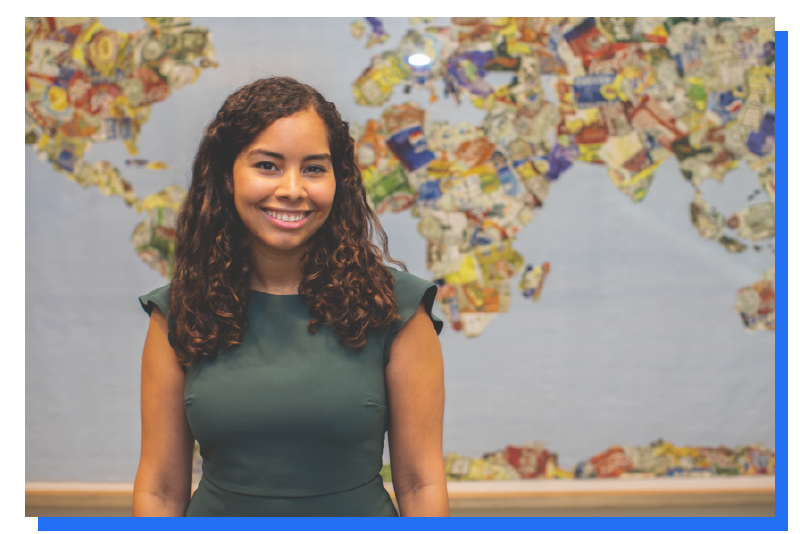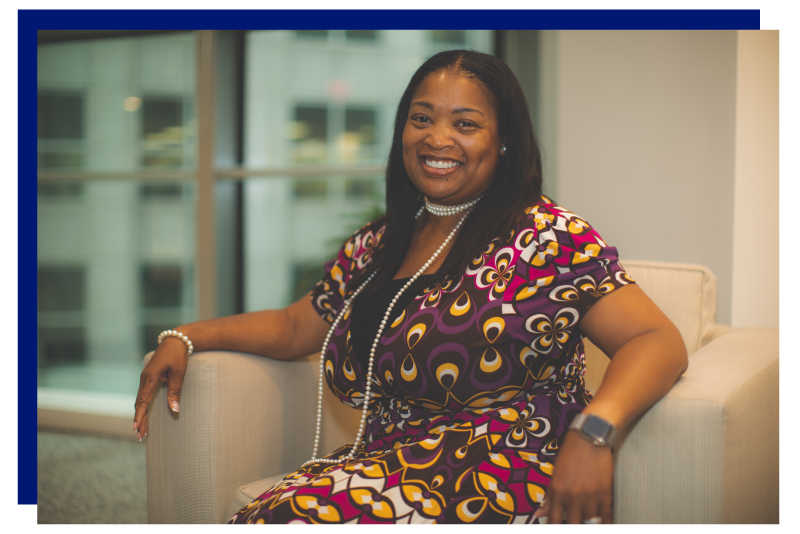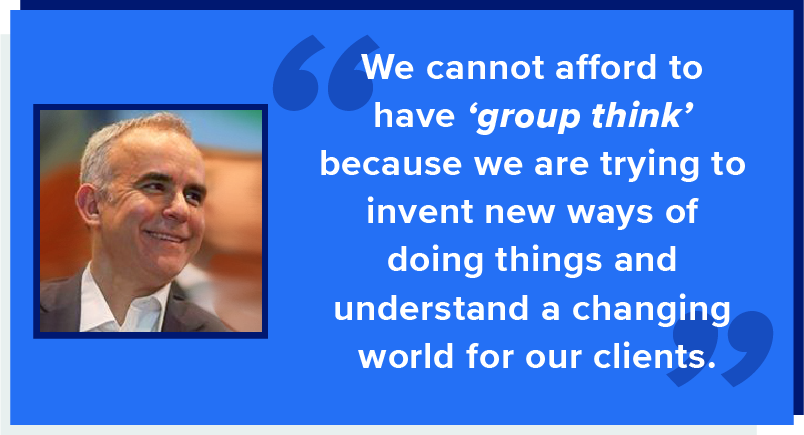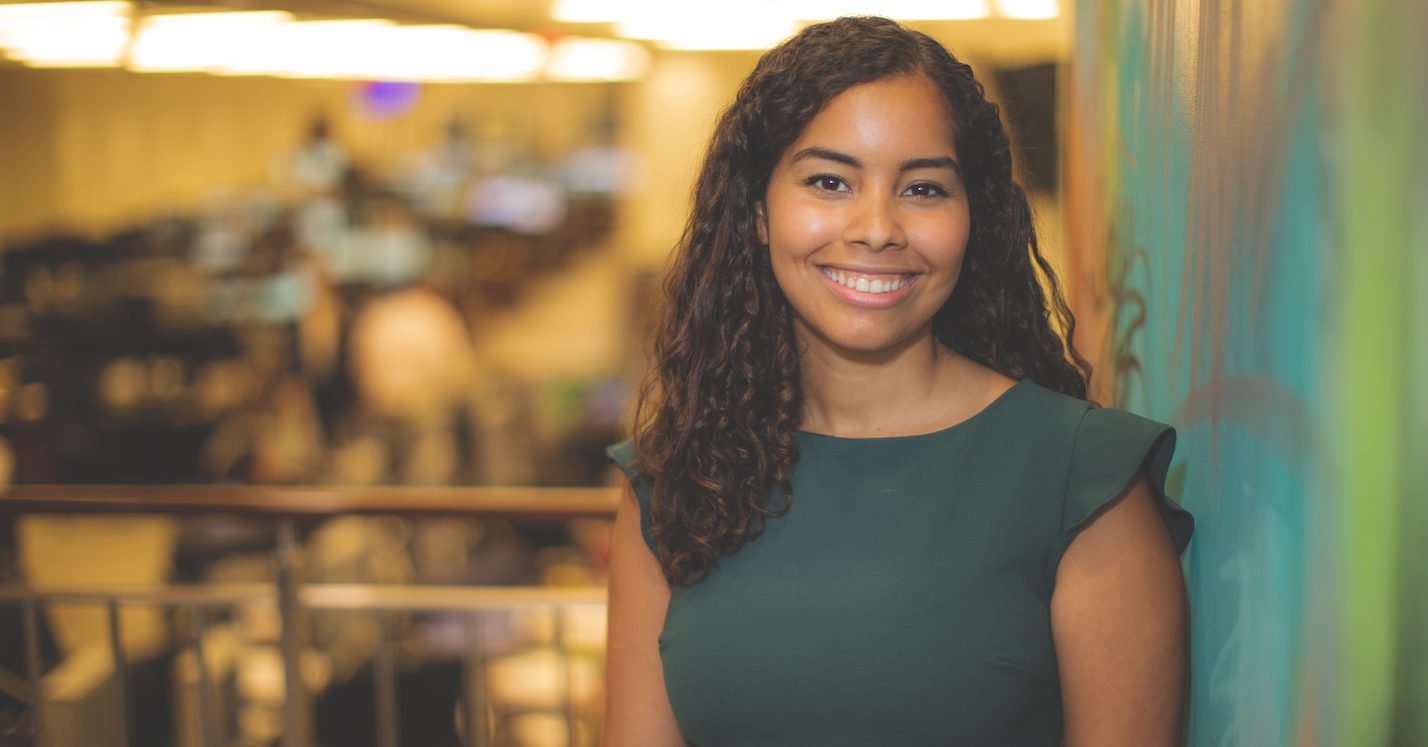At some point in your life, you’ve probably
heard that you should pursue your passion as a career, which likely factored
into your decision when you were selecting your major as a first-year college
student.
Through your internship search, you’ve probably seen a lot of job descriptions that call for a strict list of related majors. That’s one of the many ways BlackRock—a financial technology (FinTech) and asset management leader—stands out from other companies. BlackRock values diversity of thought and actively recruits people from a range of backgrounds–especially those that aren’t business majors.
To get a better sense of why and how BlackRock
does this, we spoke to some of their employees with liberal arts degrees who are
at different stages of their careers.
At BlackRock, Liberal Arts Skills Really Come In Handy

Tyler is a recent grad whose job is to
communicate possible volatility, risk factors, and other market themes to
Portfolio Managers—something his double-major prepared him for.
“Being able to tell a story in a succinct,
articulate way is key to being successful in the role. In doing so, data
visualization is of paramount importance. Art History prepared me to linearly
narrate market trends, as well as articulate that story with customized
visuals,” Tyler says.
BlackRock’s interest in having diversity of
thought also stems from their global presence. Liz is an analyst who helps
clients understand how BlackRock products fit into their financial objectives.
She found that her academic background in foreign languages has helped her and
her team engage more with colleagues and clients abroad.
“My educational background has significantly
improved connectivity across our global teams. Speaking to someone in their
native language drastically increases engagement, and I’ve found an increased
level of interaction from our sales team in regions that speak Spanish and
Italian ever since I’ve joined the team,” Liz explains. “Having a global
mindset and background, be it educational or cultural, will always add value to
a team in a global, collaborative company like BlackRock.”

There are other lessons that are just as valuable. Just ask Alan Mason. He’s a Managing Director who holds multiple degrees in music and ethnomusicology. Over the course of his 25-year career in investments, Alan’s found that the same skills that served him in pursuit of his PhD translated well to innovative finance environments like BlackRock.
“I leveraged my academic abilities to
organize, communicate and deliver projects in the world of asset management,”
Alan says, adding that many of the best managers at BlackRock learn important
leadership skills from their liberal arts studies. “Humanities disciplines
broadly prepare leaders to recognize patterns, tell stories and communicate
clearly. These perspectives help managers lead and influence internal and
external parties.”
These traits have certainly served him well:
He started with a two-day temp job and worked his way to a senior leadership
position as a Managing Director, one of the highest attainable ranks at
BlackRock.
Of course, his experience with playing music
helped, in addition to his academic background in it: “Music teaches the
discipline of setting small goals, then practicing hard, seeking feedback, and
ultimately performing at a higher level. As someone who takes pride in
executing many things in a reliable way, I lead my teams by example to push
themselves to do the same thing.”
Why BlackRock Pursues Liberal Arts Talent (And How It Pays Off)
“How does a company challenge the status quo?
How does a company leapfrog from where it is to the future of what it could be?”
Those are questions that Tiffany Perkins-Munn, a global decision sciences leader on BlackRock’s marketing team with a background in psychology, Spanish, and applied statistics, asks herself. “A company can only do this by examining a problem from many different angles and perspectives to uncover new approaches and discover new opportunities.”

BlackRock’s commitment to innovation and their
wide array of products and services have always been their competitive edge,
and this drives the company’s strategy of recruiting and fostering a diverse
slate of perspectives. This approach has helped them become the largest asset management company in the world (among
other achievements).
Tyler saw firsthand how his background and
skillset added a unique perspective last year when he attended a global meeting
for his Risk & Quantitative Analysis team and presented a new take on a
complex data visualization.
“I came up with a creative way of visualizing
the data called a ‘violin plot.’ It is similar to a box-and-whisker plot, but
adds density on the x-axis, which helps identify clustering,” Tyler says.
His approach to that problem earned him the
praise of the Chief Risk Officer (who named the new plots after Tyler!) and
serves as a prime example of how BlackRock truly embraces diversity of thought.
“We could’ve spent the last three weeks
building the most complex analysis, but if we can’t articulate it in layman’s terms,
our work would’ve been a waste! Art History has been a tremendous help in
storytelling with data,” Tyler adds.
The recognition of and emphasis on unique
approaches to problem-solving isn’t just another strategy for the company,
either. It’s a necessity.
“We cannot afford to have ‘group think’
because we are trying to invent new ways of doing things and understand a
changing world for our clients,” explains Alan, who’s personally responsible
for a team of over sixty. “Diverse academic backgrounds help foster divergent
thinking.”
Impressed with BlackRock’s wide array of
opportunities for liberal arts majors?
The team at BlackRock also gave us some tips for using your liberal arts
degree to your advantage, both in the job search and on the job.
How To Turn Your Liberal Arts Degree Into An Advantage In The FinTech World

“Use your background as an asset,” Liz says. “FinTech companies are increasingly aware of the many benefits that having a diverse team can offer, and the diversity of educational background is a big component to achieve success.”
The very reason that liberal arts majors might not consider FinTech roles—because they’re afraid that their lack of formal finance education disqualifies them—is why they should pursue them, Liz says.
“Don’t shy away from FinTech roles, because more likely than not, they’re looking for someone like you to add a fresh and new perspective to their team,” she says.
“Do your research using broad search terms so that you can learn about
opportunities across many different functions or departments within financial
services, how they are differently specified, and any ‘special’ skills or
knowledge you may need for a specific function,” Liz says.
Tiffany can attest that employees with “diversity of thought allow for
examination from every angle, which equals new approaches, new opportunities,
creative problem solving, thinking outside the box and more innovation.”
There is an opportunity for everyone at
BlackRock and the company values people with different backgrounds and
perspectives.
Want to learn more about building a FinTech
future with a liberal arts degree? Visit BlackRock on WayUp!
#Liberal #Arts #Degree #Work #FinTech #Company



